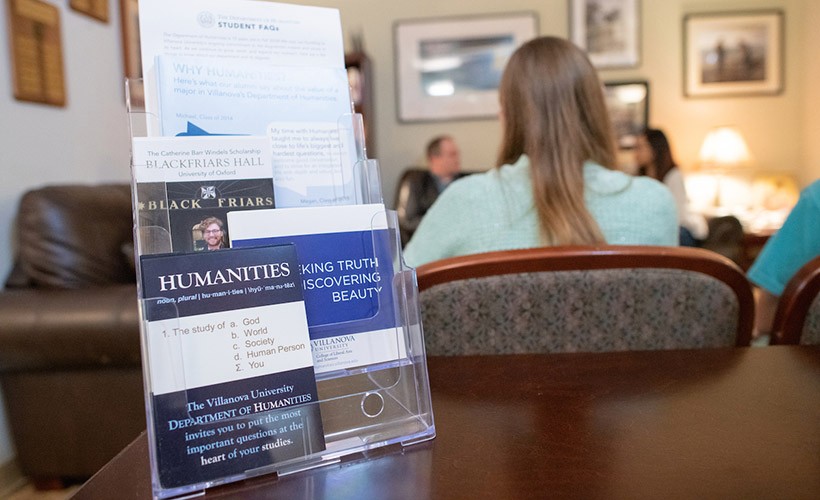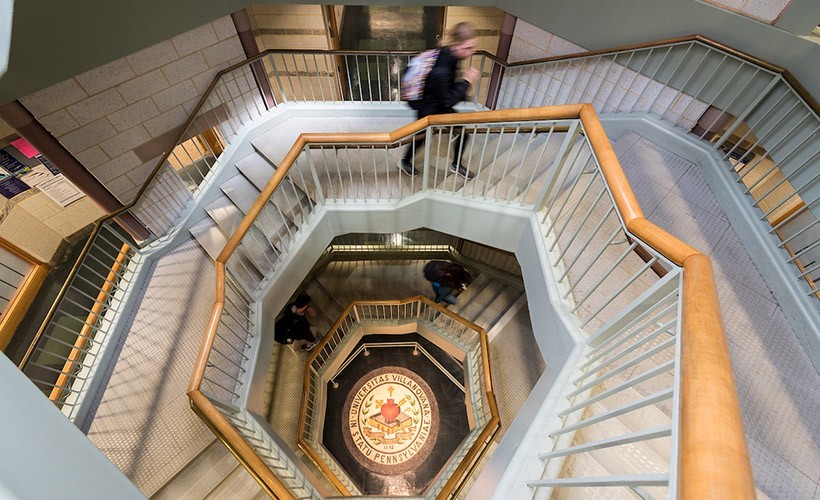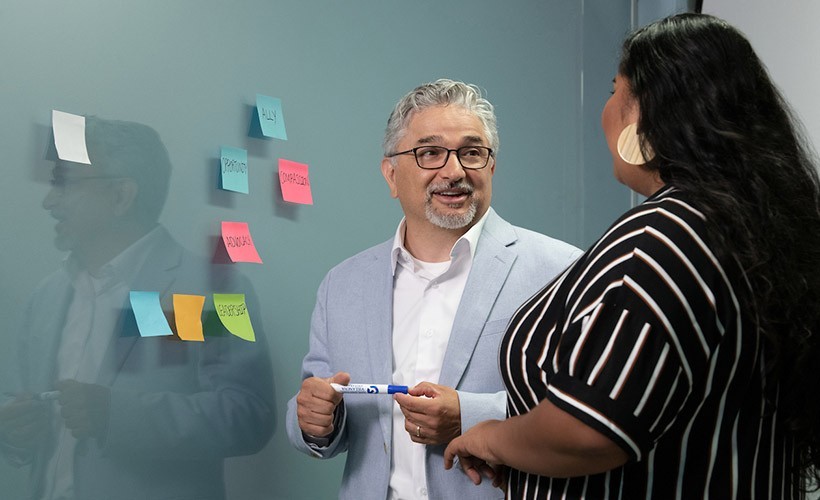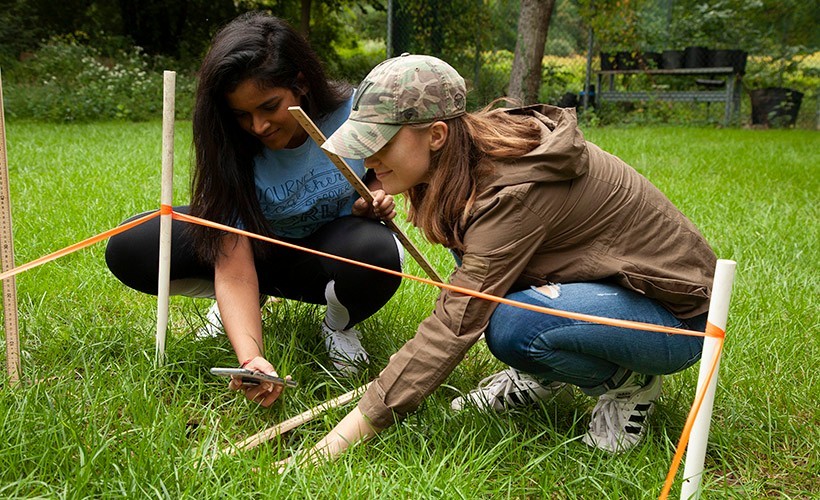GUIDING PRINCIPLES

How can I know myself in order to know other people, God and the natural world? Our rigorous, interdisciplinary curriculum pursues sustaining answers to these vital questions, equipping students to flourish in their studies, relationships, and future professions.
The Department of Humanities is a mission-driven scholarly community of students and faculty pursuing the joys of inquiry and wisdom through a question-driven curriculum and within a collegial, interdisciplinary, liberal arts setting.
Our intellectual culture enables members of our community to identify major questions about the human person; to broach these questions from the perspective of various academic disciplines; to integrate these interdisciplinary questions through the guiding disciplines of theology and philosophy; and to bring the contemporary world into dialogue with the Augustinian Catholic intellectual tradition.
Our humanistic exploration includes fruitful exchange with diverse partners in that dialogue and highlights the multiple voices included within this tradition. This endeavor fosters the skills of reading critically, insightfully, and sympathetically; of thinking clearly and responsibly about complex questions; and of articulating arguments fluently in writing and speech.
Among Humanities students, the fruits of these habits of inquiry are the reflective and integrating research embodied in the senior essay; the discernment of their life’s work as a vocation; and a sustainable and mature understanding of self and humanity in relation to questions about God and the Good. Such growth, in turn, sustains the further development of the intellectual life and culture of our department.
Humanities students learn to engage major questions about the human person. Using the insights of multiple academic disciplines and under the integrating guidance of theology and philosophy, students bring the contemporary world into interdisciplinary dialogue with the Augustinian Catholic intellectual tradition.
Our graduates leave Villanova with a sustainable, mature understanding of self and humanity in relation to questions about God, the common good, and the good life.
Humanities students acquire the skills to read and think critically, insightfully, sympathetically, and responsibly about complex questions. Their writing and oral expression communicate these virtues. Their studies allow them to reflect on their life’s work as a vocation and to develop habits of inquiry for the lifelong pursuit of wisdom.
Outside the classroom, our Humanities majors and minors belong to a vibrant community centered on the virtues of conviviality and intellectual friendship.
The Department of Humanities—through its interdisciplinary curriculum, pedagogical philosophy, and commitment to the Catholic Intellectual Tradition—has been specifically designed and developed to be at the heart of the mission of both Villanova University and the College of Liberal Arts and Sciences as a “Catholic Augustinian community of higher education, committed to excellence and distinction” (Villanova University Mission Statement). It views diversity, equity, and inclusion as integral to that mission through its philosophical recognition of the inherent dignity of all human beings and its pedagogical approach to the “Great Augustinian Questions” that empowers diverse personal and communal experiences and multiple perspectives within the classroom. At the level of curriculum, we seek to highlight two modes of connection between diversity and the Catholic Intellectual Tradition: first, diversity within the Catholic Intellectual Tradition and, second, the ways that tradition enters into fruitful dialogue with diverse partners about the “Great Augustinian Questions.”



